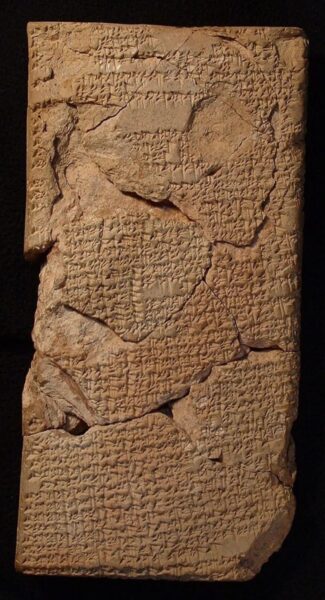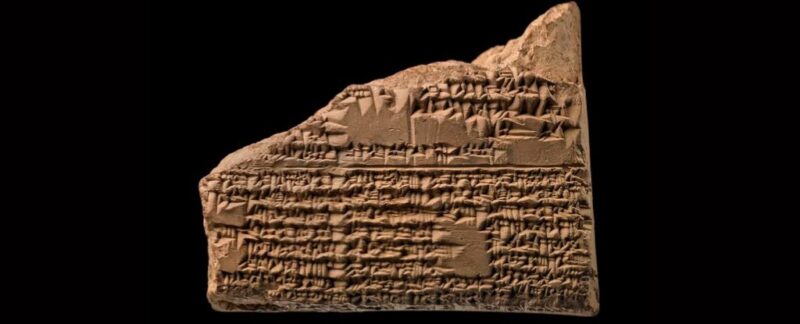Four recently translated Babylonian tablets give insight into the supernatural concerns of that ancient era. The 4,000-year-old clay tablets hold 61 ominous warnings of the death, doom, and destruction that will surely follow lunar eclipses. Most of them were terrible news for the king at the time.
Andrew George and Junko Taniguchi have been translating the tablets with the help of artificial intelligence. The tablets were unearthed over a century ago in present-day Iraq and have been in the British Museum since then. They were created in the ancient city of Sippar between the 17th and 18th centuries BC. They are the oldest inventory of lunar eclipse omens ever discovered.
Among the dire predictions: a lunar eclipse in the morning “means the end of dynasty.” One in the evening “signifies pestilence.” If an eclipse begins in the south, it predicts the “downfall of Subartu and Akkad” (other regions at the time).
Mad dogs and locusts
Others warn that “rain will be cut off from the sky,” “there will be an attack on land by a locust swarm,” and “a dog will go mad, and nobody bitten by it will survive.”
Babylonia was part of Mesopotamia, and astrology played a large role in its culture. The king’s closest advisors watched the night sky, matching their observations with those of celestial-omen texts.
If negative predictions threatened the monarch, his advisors killed animals and used their entrails to decipher the omen. Rituals then took place to protect against it.
For some particularly nasty omens about the king, a substitute king would be named. He would then become the target of divine wrath, sparing the actual king from harm.
“Astrological observation was part of an elaborate method of protecting the king and regulating his behavior [to conform to] the wishes of the gods,” the authors explain in the new study.

Photo: Trustees of the British Museum
Making sense of a lunar eclipse
The translated tablets show how important these omens were to the Babylonians. They are essentially a set of instructions for making sense of a lunar eclipse. Every aspect of the eclipse held meaning. The time of day, the date, the month, the movement of shadows, and the duration all signified different omens. Any lunar event was thought to be a warning from the gods.
The study suggests that most omens conformed to people’s experiences. They would connect bad things that had happened to what they saw happening in the world, or more specifically, the sky.
“Babylonian astrology was an academic branch of divination founded on the belief that events in the sky were coded signs placed there by the gods as warnings about the future prospects of those on Earth,” explained the authors.






